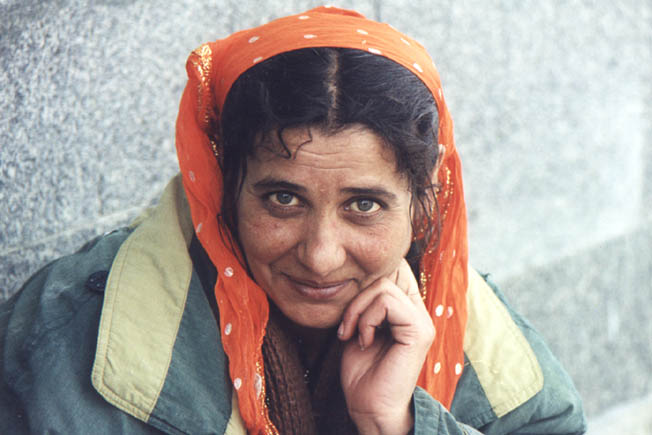 The Gypsies major groups live in Stavropolsky Krai, Rostovskaya Oblast, Krasnodarsky Krai, Samarskaya Oblast. The Gypsies major groups live in Stavropolsky Krai, Rostovskaya Oblast, Krasnodarsky Krai, Samarskaya Oblast.
Different ethnic groups as a result of blending with the local population:
- Russian Gypsies, the largest Gypsy group in Russia that has many subgroups named after geographical location, e. g. Smolensk Gypsies, Pskov Gypsies;
- Crimean Gypsies live in Crimea, in Zaporozhye Region in Ukraine, Rostov Region, Krasnodar Province, Siberia and the Far East, Moscow and St Petersburg.
- Central Asian Gypsies (Sredneaziatskiye tsygane; Mughat), ca. 12,000 people, speak Uzbek or Tajik as their first language;
- Bosha gypsies live in Armenia and are to a great extent assimilated, use Armenian as their native language.
Self-destination: Rom
Language: Romany, old ties to Sanskrit, today there are many dialects. Amajority is bilingual.
Religion:Orthodox Christians (Russia), Sunni Moslems (Crimea, C. Asia), some Catholics; own trad. beliefs.
Religion:Orthodox Christians (Russia), Sunni Moslems (Crimea, C. Asia), some Catholics; own trad. beliefs.
Gypsy nomadism is global and it is not limited to rural areas. It is assumed that Gypsies' ancestors left India about a thousand years ago. They settled first in what is today Iran and in Egypt, stayed on the periphery of the Byzantine Empire, moved to different parts of Europe in the 15th c., were chased away from various states since the end of the 15th c.
In the 16th c., a group of Gypsies came via Romania and Moldova to Ukraine and another one via Poland to northern Russia. In the second half of the 18th c., Gypsies were already all over Russia.
In the first years of Soviet rule, measures were taken to raise Gypsies' education level (professional Gypsy Theatre, literature journal, preparation of Gypsy schools) and to make them settle. Later on, the Gypsies shared the destiny of other deported populations. Thousands of Gypsies were deported to Siberia.
In 1956, there was adopted a Soviet decree on bringing the Gypsies to a settled way of life, by which it was forbidden to move to another place. The Soviet policy in relation to the Gypsies brought about many problems, especially low education level.
The democratization process in Russia made it possible to establish Gypsy culture associations in 1991 (Moskovskoye tsyganskoye kulturno-prosvyetitelskoye obshchestvo and Sektsiya tsyganskoy kultury pri Rossiyskom fonde kultury).
Gypsies maintain a powerful sense of identity. They preserve their own Gypsy folk culture although they adopt the language of the respective society. They often meet suspicion and hostility. 500,000 Gypsies (incl. Gypsies living in Russia) were killed, sent to concentration camps, in the countries occupied by Nazi Germans in World War II. The most serious anti-Gypsy riots in recent years took place in Odessa in 1992.
|













 State
State  Nations of Russia
Nations of Russia